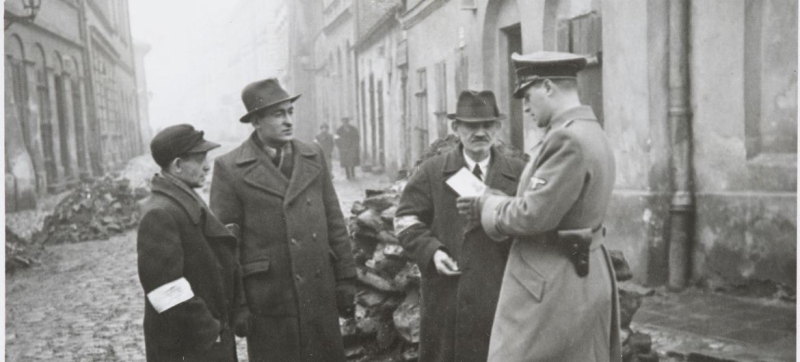
Checking the documents of Jews in Krakow. Poland, 1941 On the eve of International Holocaust Remembrance Day, Volker Türk called for the fight for dignity and human rights Human Rights
80 years ago, on January 27, 1945, about 7,000 prisoners of the Auschwitz-Birkenau concentration camp were liberated by the Allied forces. Exhausted, emaciated, frightened and sick, these 7,000 people were the last survivors of the 1.3 million men, women and children sent to Auschwitz. This was recalled by UN High Commissioner for Human Rights Volker Türk on the occasion of International Holocaust Remembrance Day.
“We remember the victims, we pay tribute to the survivors, and we remember that the world has vowed never to allow such atrocities against humanity to happen again,” the UN rights chief said.
“To paraphrase Primo Levi, the famous writer who was one of the prisoners liberated from Auschwitz 80 years ago: It happened, so it can happen again, and it can happen anywhere,” he added.
The Holocaust claimed the lives of six million Jews, as well as Roma and Sinti, people with disabilities, gays and many others. Remembering them is not only an acknowledgement of the past, but also an opportunity to examine the present and look to the future.
Today, hate speech is spreading around the world, Türk stressed: “Anti-Semitism is thriving on the streets and online. Jews face increasing intimidation, threats and physical violence.”
Read also:
UNESCO: Two-thirds of digital content creators do not fact-check before sharing
“Too often, discrimination and dehumanization take precedence over solidarity and compassion. Diversity is seen as a threat rather than something to be valued. And many leaders undermine and weaken the rule of law,” he added.
The High Commissioner sees International Holocaust Remembrance Day as a reminder to confront intolerance and to speak out in the face of violence: “As another Holocaust survivor, Elie Wiesel, said, silence encourages the torturer.”
Türk called for the fight for human dignity and human rights by condemning hate speech, exposing disinformation and resisting all attempts to sow fear.
The High Commissioner called the Holocaust “a horrific monument to hatred” and called for its lessons to be remembered.
“Let us remember the victims and the survivors. Let us honor those who defended the persecuted. And let us work together to build a common, peaceful, just and dignified future for all,” he said.
